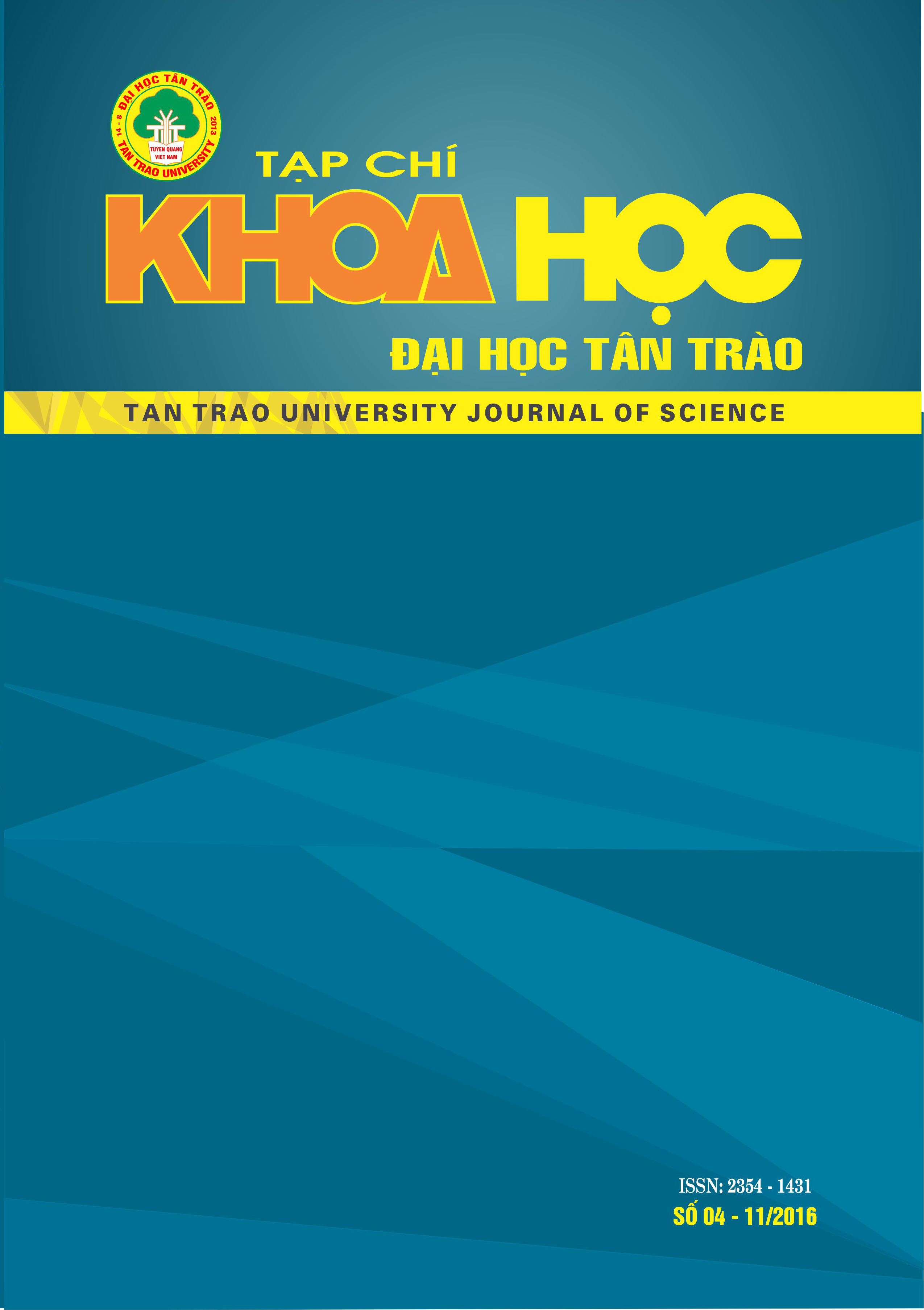VỀ VĂN HÓA GIAO TIẾP CỦA NGƯỜI VIỆT QUA VIỆC SỬ DỤNG HƯ TỪ MANG NGHĨA HÀM ẨN
DOI:
https://doi.org/10.51453/2354-1431/2016/122Từ khóa:
hÆ° từ; nghÄ©a hà m ẩn; nghÄ©a tình thái; nghÄ©a miêu tả; văn hóa giao tiếpTóm tắt
Hư từ trong ngôn ngữ nói chung và trong tiếng Việt nói riêng, tuy không thực hiện được chức năng định danh, không đảm nhiệm các chức năng ngữ pháp chính trong cụm từ và trong câu, nhưng đối với việc thể hiện nghĩa tình thái trong câu và đối với việc tạo lập câu mang nghĩa hàm ẩn thì nó lại là một phương tiện có giá trị không nhỏ. Báo cáo phân tích vai trò của một số lớp hư từ thuộc phụ từ, tình thái từ, quan hệ từ trong tiếng Việt đối với việc thể hiện nghĩa hàm ẩn trong câu. Hơn nữa, phần nghĩa hàm ẩn đó có thể thuộc lĩnh vực nghĩa miêu tả hay nghĩa tình thái. Qua đó, bài báo góp phần khẳng định vai trò của hư từ tiếng Việt trong văn hóa giao tiếp bằng ngôn ngữ của người Việt.
Tải xuống
Tải xuống
Đã Xuất bản
Cách trích dẫn
Số
Chuyên mục
Giấy phép

Tác phẩm này được cấp phép theo Giấy phép Quốc tế Creative Commons Attribution-ShareAlike 4.0 .
Bài báo được xuất bản ở Tạp chí Khoa học Đại học Tân Trào được cấp phép theo giấy phép Ghi công - Chia sẻ tương tự 4.0 Quốc tế (CC BY-SA). Theo đó, các tác giả khác có thể sao chép, chuyển đổi hay phân phối lại các bài báo này với mục đích hợp pháp trên mọi phương tiện, với điều kiện họ trích dẫn tác giả, Tạp chí Khoa học Đại học Tân Trào và đường link đến bản quyền; nêu rõ các thay đổi đã thực hiện và các nghiên cứu đăng lại được tiến hành theo cùng một bản quyền.
Bản quyền bài báo thuộc về các tác giả, không hạn chế số lượng. Tạp chí Khoa học Tân Trào được cấp giấy phép không độc quyền để xuất bản bài báo với tư cách nhà xuất bản nguồn, kèm theo quyền thương mại để in các bài báo cung cấp cho các thư viện và cá nhân.
Mặc dù các điều khoản của giấy phép CC BY-SA không dành cho các tác giả (với tư cách là người giữ bản quyền của bài báo, họ không bị hạn chế về quyền hạn), khi gửi bài tới Tạp chí Khoa học Đại học Tân Trào, tác giả cần đáp ứng quyền của độc giả, và cần cấp quyền cho bên thứ 3 sử dụng bài báo của họ trong phạm vi của giấy phép.






